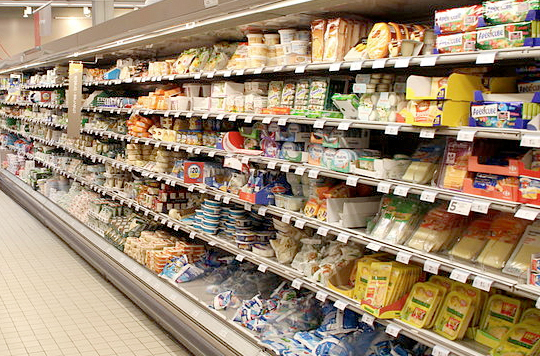
Activists today will stage a demonstration to highlight the need for the government to ensure the new supermarket watchdog being introduced has the power to fine supermarkets for unfair buying practices.
Campaigners from UK development and environmental charities will stage the demonstration at the Department for Business, Innovation and Skills.
The charities, which include War on Want and ActionAid claim that supermarket buying practices hit the working conditions of farmers overseas and in the UK.
"It is vital the government gives the supermarket watchdog the power to fine" said Murray Worthy from War on Want.
"A watchdog that is all bark and no bite won't be able to stop supermarkets bullying their suppliers."
They say the government’s proposals to “name and shame” offending supermarkets will not deter them from continuing to engage in unfair trading, despite negative publicity, reinforcing the findings of the Competition Commission’s 2008 investigation into supermarket practices.
The need for a Grocery Code Adjudicator, which has cross party support, was made clear in two reports by the Competition Commission published in 2000 and 2008.
The reports found that many big supermarkets were abusing powers in the market and were transferring ’excessive risk and unexpected costs’ to farmers, growers and suppliers.
Notwithstanding the reports, some MPs and farming bodies said the watchdog’s powers fall short of what is needed to make a difference.
However, British Retail Consortium Food Director, Andrew Opie has said that a supermarket adjudicator will make no difference because few farmers deal directly with the supermarkets.
A report released by the BRC said farmers are benefiting from retail investment in the food supply chain and recommends investment in supply chains.
It includes examples of collaboration which are boosting UK farmers’ returns and helping them benefit from meeting customers’ needs. Farmers are also being helped to reduce both their costs and environmental impact.
The BRC says its evidence shows the mutually-beneficial relationships which help both consumers and these farmers are already in place.
It has also said the Groceries Code Adjudicator will only cover supermarkets’ relationships with direct suppliers. They said it is a myth that it will make any difference to the majority of farmers.
The charities warn that if legislation now going through parliament leaves the proposed supermarket watchdog, the Groceries Code Adjudicator, without the power to fine supermarkets from day one it will struggle to enforce the Groceries Code and stop supermarkets shifting their risks and unexpected costs onto their suppliers.
They say the government’s proposals to “name and shame” offending supermarkets will not deter them from continuing to engage in unfair trading, despite negative publicity, reinforcing the findings of the Competition Commission’s 2008 investigation into supermarket practices.
Paul Spray, Traidcraft’s policy director, said: “If a supermarket ignores the Groceries Code it has signed up to, it needs more than a slap on the wrist. Giving the watchdog the power to fine sends a strong signal that it means business and developing country suppliers can have confidence that supermarkets will be held to account for their abusive practices”.
The big four supermarkets - Tesco, Asda, Sainsbury’s and Morrisons - control over 75 per cent of the grocery market in the UK.
